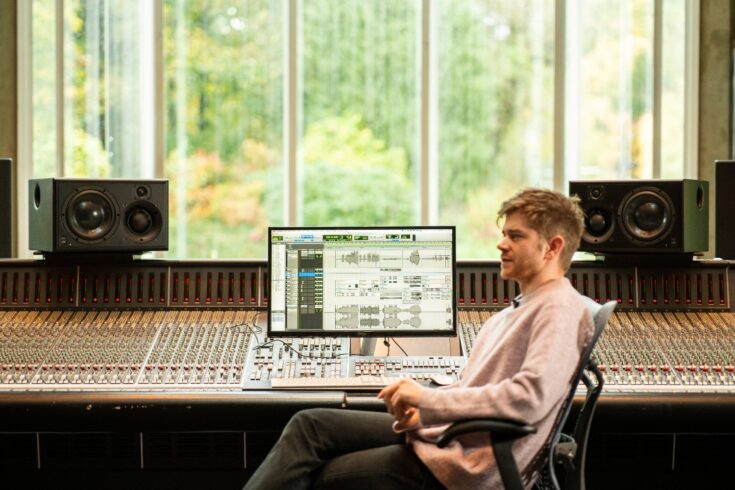Bartolomeo Cristofori invents the piano in 1700. Les Paul invents the solid body guitar in 1941. DJ Grand Wizzard Theodore scratches records in 1975. A hologram of rapper Tupac Shakur performs at Coachella in 2012.
These are just a few of the historical innovations that revolutionised music and how we experience it. But what’s next?
Reality-bending gigs
Well, what about using virtual reality to go to a gig that you can’t attend in person, interacting with other audience members almost as though you were in the room?
Researchers at Bath Spa University have teamed up with Bristol club Lost Horizon to create a ‘digital twin’ venue that can share live performance in online virtual spaces.
They made it happen for real at the 2022 Glastonbury Festival where an immersive virtual reality experience enabled people both inside and outside a venue to dance with one another in real time.
Meanwhile, the XRtists project is supporting performers across the UK to blend physical and digital experiences using ‘extended reality’, known as XR, the type of technology used in the ABBA Voyage show.
And during lockdown, Real World Studios in Wiltshire created new immersive recording techniques to broadcast a concert-like, 360-degree listening experience into people’s homes. You can hear the results on the WOMAD At Home website.
Better instruments
Or, if classical music is more your thing, how about having a full-size, full-sound grand piano in your living room?
First Light Pianos, a small company based in south-west England, has revolutionised the design of grand pianos to make them easier to move around and fit into modern homes.
The new design uses modern engineering to make the piano lightweight, and the strings go vertically instead of horizontally.
The new design also reduces the piano’s carbon footprint by 60% without compromising the sound.
Accessible controllers
Other innovators are making instruments more accessible so more people can play, and in different ways.
At Queen Mary University of London, researchers created a concept for a violin that can be played with only one hand.
The performer bows the open strings of an electric violin and uses their voice as a controller to change the notes that emerge.
Meanwhile Digit Music’s Cmpsr MIDI controller is designed like a gaming joystick with tactile buttons, so anyone can play notes and chords with a single finger stroke.

The Cmpsr MIDI controller is based on game controllers so it’s simple and accessible to use. Credit: Digit Music
The power of AI
Artificial intelligence (AI) is also going to feature heavily in the music of the future.
Some new ways to use AI in music include separating out individual instruments from an audio recording, helping to write lyrics and ensuring artists are paid fairly.
Even trip-hop legends Massive Attack used AI to create digital instruments for their Mezzanine 20th anniversary tour in 2019.

AudioStrip uses AI to automatically identify musical elements from a song and extract them into independent tracks. Credit: AudioStrip
UKRI support
These projects were supported by UK Research and Innovation (UKRI) and they are just some of many ways that we are helping to create the future of music and live performance.
Christopher Smith, Executive Chair of the Arts and Humanities Research Council (AHRC), part of UKRI, explains:
From improving the design of traditional instruments to creating amazing ‘extended reality’ performances, technology is making a big difference to music and how people experience it.
UKRI’s extensive funding for research and innovation in the arts is supporting that.
Top image: Oli Jacobs, Head Engineer at Real World Studios, with the desk he used to record WOMAD At Home. Credit: UKRI

